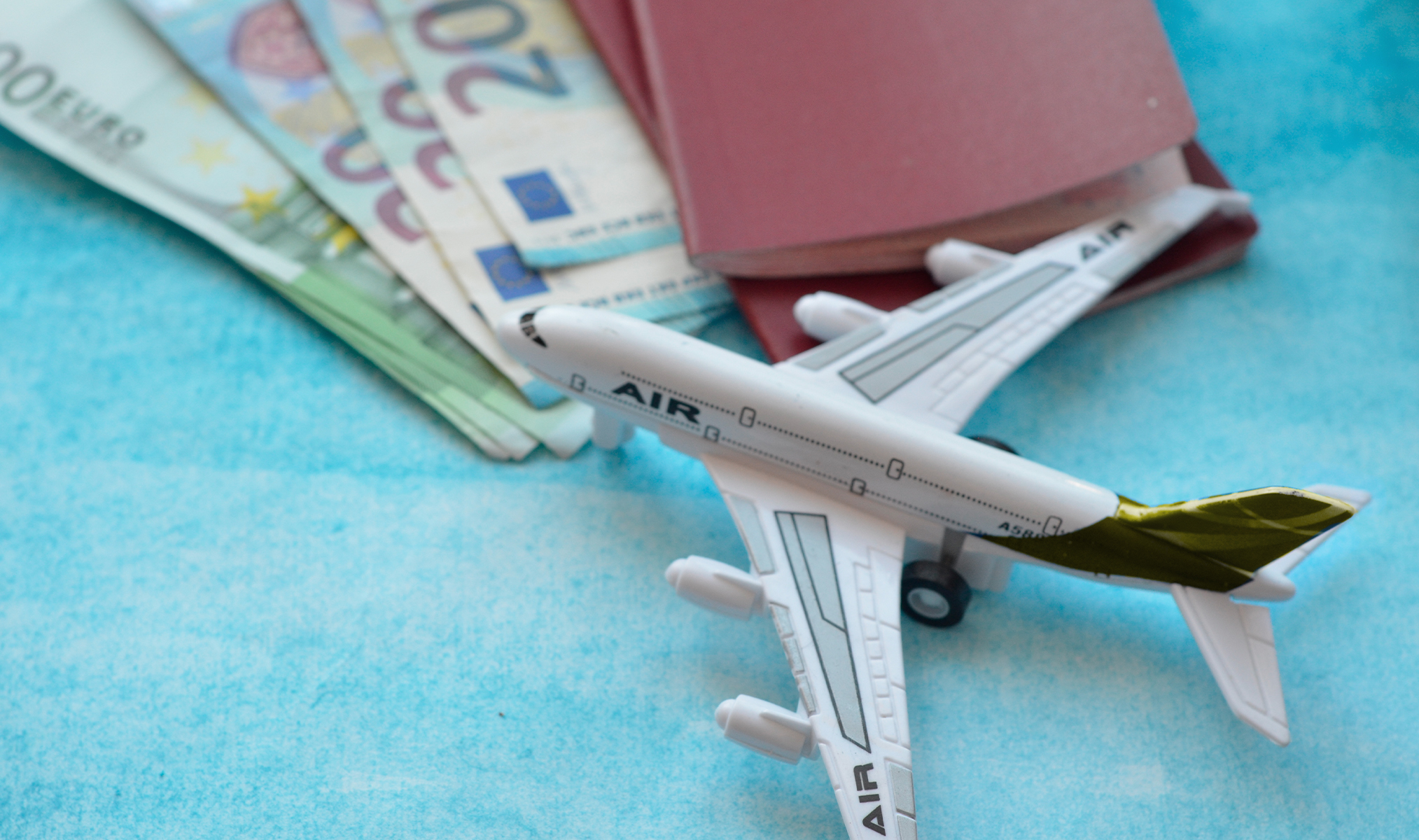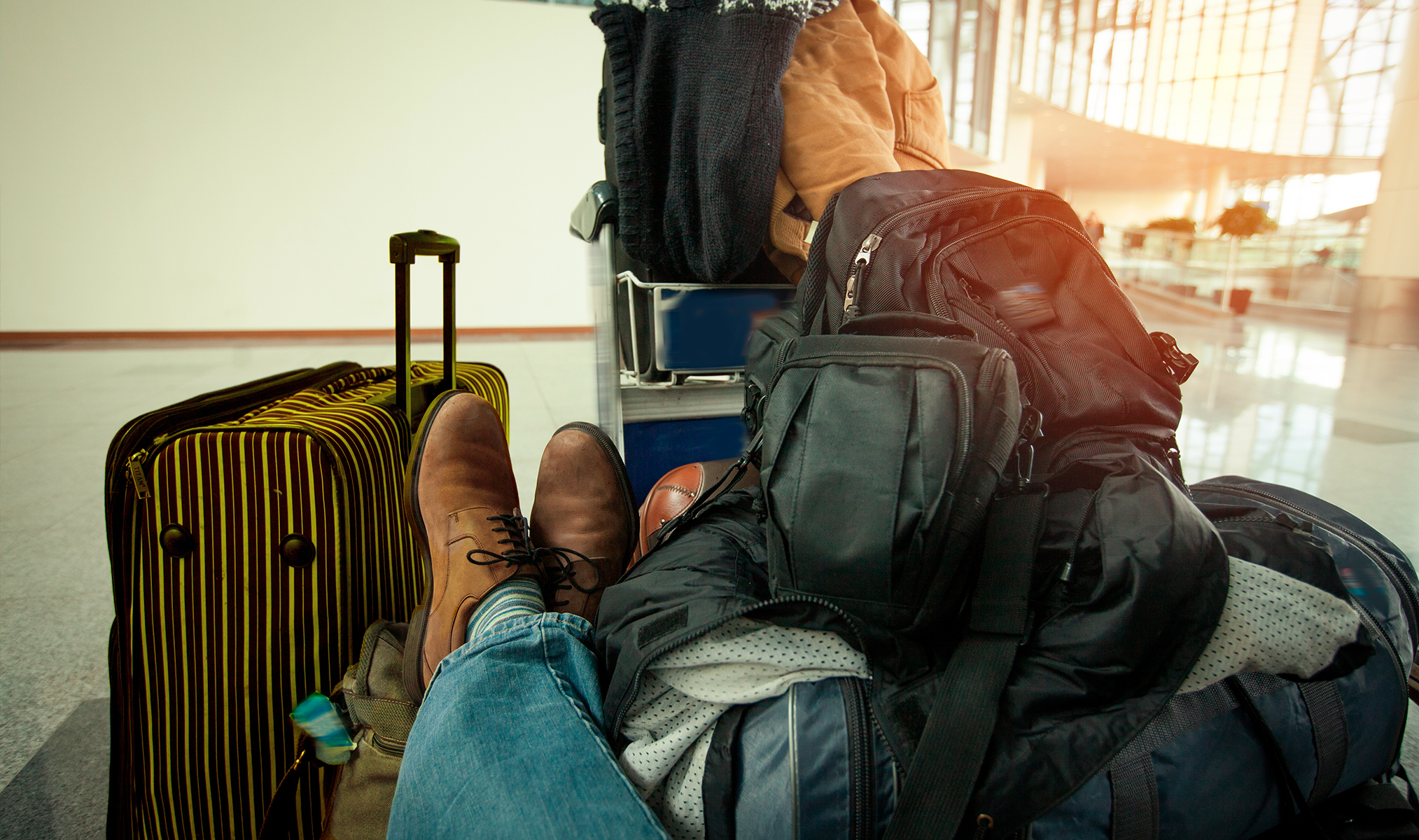The importance of business travel budgeting
The cost of corporate travel quickly starts adding up. It’s just the travel booking that forms part of your budget. Every corporate trip comes with dozens of individual transactions that add to the overall cost – from car rental to food expenses and taxis.
Travel budgets are amongst the most difficult finances for a company to manage and control.
While IT and office administration often have a sustainable budget, travel expenses can fluctuate from one employee to the next. The cost of transport and accommodation is only the start of your budgeting. Over 20% of business travel budgets are allocated to food expenses.
Having a business travel budget is crucial to maintaining your company’s profitability and maximizing its return on investment. It’s easy to lose control of your spending if you don’t have a corporate travel budget in place. Establishing a budget can make corporate travel more sustainable, ensure expense compliance, and optimize trips.

Establishing a budget can make corporate travel more sustainable, ensure expense compliance, and optimize trips.
Photo: Sasun Bughdaryan/ Shutterstock.com
How to manage a travel budget effectively
Corporate travel is crucial to building relationships, networking, and staying relevant within emerging industries. Whether it’s a start-up or a multi-national company, organizations must manage their travel budget effectively to make these trips productive without negatively impacting their bottom line.
Minimizing overspending is crucial for managing a travel budget effectively.
Having a travel budget and strategy in place can maximize the potential of corporate travel and make it more affordable. Corporate travel agents can utilize these strategies to enable clients to make informed financial decisions and travel more consistently at an accessible price point.
We’re sharing eleven tips to save money while booking corporate travel:
Implement a corporate travel policy
Most companies will reimburse their employees for expenses incurred during corporate travel. Having a comprehensive travel policy is crucial to prevent unnecessary spending and set clear guidelines for employees.

Your travel policy should include defined expense categories to show employees what is eligible for reimbursement and what isn’t.
Photo: Rawpixel.com/ Shutterstock.com
Your travel policy should include defined expense categories to show employees what is eligible for reimbursement and what isn’t.
Setting daily or per-trip spending caps will prevent your reimbursement system from being abused.
Consider choosing location-specific expense limits, as cities like New Delhi are more affordable than Geneva or London.
Invest in smart travel technology
Technology is your best friend in managing corporate travel budgets. Utilizing apps and travel management software to get complete transparency on booking and expenses.

Digital expense management is more time and cost-efficient than manual processes and ensures accurate reporting for employee reimbursement and company accounts.
Photo: Andrey_Popov/ Shutterstock.com
Introducing technology to your management processes can prevent unnecessary expenses and give your finance team real-time data on travel spending. Digital expense management is more time and cost-efficient than manual processes and ensures accurate reporting for employee reimbursement and company accounts.
Streamline corporate bookings
Working with a corporate travel agent can help establish spending limits and implement clear guidelines to ensure budget consistency. Services like RateHawk offer a centralized booking system with back-office management, including invoices, travel vouchers, and order reports for accurate accounting.
RateHawk offers an exclusive precheck option to make corporate travel stress-free. You’ll get access to the best rates on airline tickets, car rentals, and hotels in over 200 countries. Manage all your corporate bookings through one user-friendly platform with all your travel-related services together.
Corporate travel data insights
Data insights are crucial for making corporate travel savings. Incorporating technology into your travel management gives you real-time data to optimize your spending and identify areas of potential savings.

Monitoring this data will make it easy to pinpoint excessive spending and compare departmental costs to ensure it is consistent with company KPIs.
Photo: Andrey_Popov/ Shutterstock.com
When you book your corporate travel through a platform like RateHawk, you get the best rates with data insights into your spending.
You want to gather and analyze data on:
- Cost of individual trips.
- Average domestic and international travel costs.
- Monthly travel budget costs.
- Travel costs per department for each quarter.
- Cost of departmental travel compared to its budget allocation.
Monitoring this data will make it easy to pinpoint excessive spending and compare departmental costs to ensure it is consistent with company KPIs.
Streamline travel expenses
Relying on manual travel expenses is one of the biggest issues for employees and finance departments. Almost 20% of expense claims have errors, taking an average of 20 minutes to fix.

Invest in digital expense systems and encourage employees to upload receipts and expenses in real-time to ensure accurate reporting.
Photo: Nuttapol Sn/ Shutterstock.com
Using manual systems is less cost and time-effective, lacking the real-time visibility crucial for ensuring your company stays within its travel budget. Invest in digital expense systems and encourage employees to upload receipts and expenses in real time to ensure accurate reporting.
Offer expense savings incentives
Keeping track of travel expenses is crucial to staying within your corporate travel budget. You can encourage employees to be compliant with your travel policy and guidelines with incentives, especially for those who stay under budget.
For example, you can reward employees who spend 80% or less of their daily travel expenses with incentives like gift cards, bonuses, and team-building experiences.

You can reward employees who spend 80% or less of their daily travel expenses with incentives like gift cards, bonuses, and team-building experiences.
Photo: Temych/ Shutterstock.com
Encourage employees to share transport
Transportation is a travel expense that quickly starts to add up. If you have employees traveling to the same destination or for the same event, encourage them to share transportation to reduce costs.
It’s an easy way to make corporate travel savings and reduce your company’s carbon footprint. Speak to your departmental teams before corporate travel and conferences to encourage them to share car rentals and taxis to stay within budget.
Stay flexible for extra savings
Flexibility is the secret to saving money on corporate travel. While you’ll not always have a choice on travel dates, encouraging flexibility with clients will allow you to explore more cost-effective routes and transport options.
Monday and Tuesday flights are typically more expensive as they’re identified by airlines as being key corporate travel days.
Business travelers make up only 12% of airline passengers but up to 75% of revenue on popular flight routes. If you think a corporate trip may be rescheduled, it’s worth investing in a ticket with a free cancellation option to allow easy rebooking.

If you think a corporate trip may be rescheduled, it’s worth investing in a ticket with a free cancellation option to allow easy rebooking.
Photo: dilyaz / Shutterstock.com
Encouraging corporate travel during off-peak times will give you access to the best airline and hotel prices, as these typically operate with dynamic pricing. Pushing your corporate travel back a few days can make major savings for your travel budget.
Plan corporate travel early
Flexibility isn’t the only thing that can save you big on corporate travel. Planning ahead and avoiding last-minute reservations can drastically reduce costs.
Booking early will give you access to the most competitive rates and best packages. While booking early won’t be possible for every corporate trip, take advantage of this strategy for events like conferences and retreats that tend to be scheduled up to a year in advance.

Booking early will give you access to the most competitive rates and best packages.
Photo: Prostock-studio/ Shutterstock.com
Avoid expensive travel add-ons
Airline tickets no longer include everything. Most domestic airlines have cut back on their bundles, charging for everything from seat selection to cabin baggage and in-flight meals. While this can make corporate travel bookings more complicated, it’s also an opportunity to make savings. Encourage employees to be smart with their travel choices and avoid excess baggage.
You can require employees to abide by certain requirements, including limited baggage on domestic and short corporate trips.
Other travel add-ons like lounge access, airport security fast track, and seat selection can all drastically increase the cost of corporate travel.

Encourage employees to be smart with their travel choices and avoid excess baggage.
Photo: Skreidzeleu/ Shutterstock.com
Use an all-in-one travel platform
Stay on budget using an all-in-one booking platform that manages everything from car rental to accommodation and transport. RateHawk gives you access to exclusive rates on corporate travel, allowing you to filter searches to match your company’s travel policy and budget.
Our group booking options are ideal for corporate travel, including restaurant bookings, conference hosting, and event organization.
Discover more about our corporate group bookings here.
Make corporate travel affordable with RateHawk
Get access to over 2.5 million hotels from more than 230 suppliers internationally. RateHawk puts everything you need for corporate travel on one platform, from car rentals to transfers and airline tickets.
Help your clients stick to their corporate travel budgets with an all-in-one platform. Our user-friendly interface streamlines the booking process with an extensive inventory, exclusive rates, and 24/7 multi-lingual support.
Get started with RateHawk today to make corporate travel affordable domestically and internationally.
Cover by EyeEm/ freepik.com


